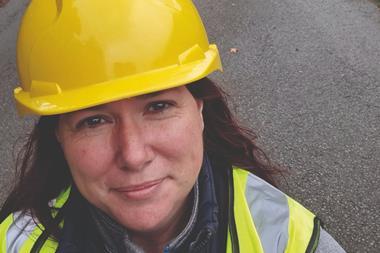The much-hyped metaverse isn’t new. The term was coined in 1992 and the first virtual world, ‘Second Life’, launched two decades ago. First-mover advantage is not a great advantage if you strike too early.

The current metaverse wave is driven by crypto technology, which allows the establishment of proprietary rights, in the digital realm. Facebook’s rebranding as Meta has contributed to the frenzy. So what does it mean for real estate?
The new virtual ecosystem permits trading of property. Ownership is through non-fungible tokens (NFTs). To buy, you need a digital wallet stacked with cryptocurrency. Investment comes with many caveats, as the digital market is untested, unregulated and speculative.
Is it even clear if virtual real estate is finite? Tom Grogan, head of Mishcon de Reya’s MDRxTech, says you can define scarcity, with major platforms setting out the scope to create land. But as new virtual worlds are created, yours may fall from favour. As the laws of physics do not apply, your virtual tower could extend skywards for limitless stories without concerns about air rights or fire regulations. To create a visual extravaganza, you could even opt for a building perpetually on fire.
The only limit is your imagination, so for the creative industries, the metaverse is a godsend and many fashion brands are already taking space. Nike and Adidas are among the corporate giants embracing the virtual world.
Gucci’s online concept store, Vault, aims for “an air of magic” with past, present and future co-existing through the power of the imagination. Gucci describes it as “a time machine, archive, library, laboratory and a meeting place”.
The current metaverse wave is driven by crypto technology
Brands entering the metaverse face issues such as brand protection. The real world’s legal framework does not apply. If a brand needs to ensure neighbouring users are appropriate to its brand values, enforcement is difficult, as the ultimate remedy of litigation cannot be relied on. An option for brands is to buy larger plots than required, creating a buffer in which they can sublet and control neighbouring uses.
This emerging world presents opportunities. Specialist retail agent Harper Dennis Hobbs has launched a consultancy to help landlords and retailers venturing into the metaverse. It’s “a new frontier” says CEO James Ebel – “just another platform for the ‘omnichannel’ offer”.
Banks are also testing the water. JP Morgan is the first bank to take virtual space, which features a live tiger and an illuminated portrait of CEO Jamie Dimon. The virtual real estate will start seeing more services found in the physical world, including financial, legal and design.
JP Morgan recently reported that the average price of a virtual land plot doubled from $6,000 in June 2021 to $12,000 by December 2021. In June 2021, a plot sold for $913,000, with the developer planning a shopping district.
As the ecosystem matures, the metaverse will become subject to stringent UK regulation, making tech companies behind the virtual worlds open to substantial fines, say those working on the forthcoming Online Safety Bill.
For the younger generations, accustomed to spending time online, this is ‘just life’, so watch this fast-evolving space, as escaping to a virtual world definitely has its attractions!
Susan Freeman is a partner at Mishcon de Reya
































No comments yet